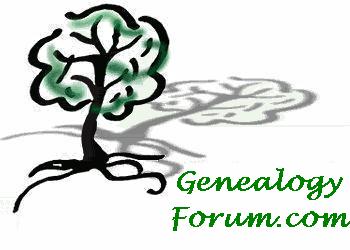A Beginner's Guide To Genealogy
So you want to learn how to research your family tree? You have come to the right place. The purpose of this section of our website is to help you with tips and hints to assist you with your genealogy quest. We can't do your research for you, but we'll be happy to help with the "how-to's".
HOW TO BEGIN YOUR FAMILY TREE
As you gather information, work backwards. Start with yourself, and go back one generation at a time. This is how you form a family tree, and since EVERYBODY has parents, a family tree is never completely done.
What do YOU already know about your family? Write down everything you know about your family. This includes: first names, middle names, last names (maiden, married, adopted, or changed), nicknames, dates & places of all family events (births, marriage, deaths, burials, adoptions, graduation, baptisms \ christenings, divorces), occupations, military service... Everything you can remember about each person. There are specific forms designed to help you keep all this information organized. Family Group Sheets and Pedigree Charts are two of the most common. You can find free blank forms, such as a Research Checklist, a Census Substitute list, a 1930 Census Abstract Form, and more, to help you organize your research online at http://www.genealogyforum.com/beginners/forms.htm
What does YOUR FAMILY know? Talk to the members of your family. If you are unable to visit each relative in person, contact them by the telephone, by mail, or even by email. Most importantly, PLEASE don't wait until it is too late! I am constantly thinking of new things I SHOULD HAVE ASKED, but there is nobody left to ask now. I started my research over forty years ago.
An interviewing Guide for family interviews can be found at www.genealogyforum.com/beginners/Folklore.htmVERIFY your information. Names \ dates \ facts you have gathered may not be accurate. Make notations of any discrepancies or variances in your documentation. Record where you found the information. There are many great places to begin your research: Family History Centers, State Archives, Genealogy Societies, Historical Societies, Public Libraries, and County Court Houses are a few. We have compiled a list of sources for you in our GenealogyForum.com Resource Center (www.genealogyforum.com/resource/index.html)
DOCUMENT your research. Document every place that you look for information. Include the date, name of the book, the name of the person you talked to, and any other data that will help you to find that information again in the future if you need to investigate further. It is always a good idea to get copies of all documents that help to prove your information. Note that many times the cost of copies of birth \ death \ marriage certificates can be minimized by asking the person making the copies for an "unofficial \ genealogy" copy, which is usually cheaper than a "certified" copy. Documentation will serve two purposes: (1) to show where and when you found your information, and (2) to remind you where you have already searched so you won't repeat that search unnecessarily down the road. Documentation is also required for membership into various different heritage societies, such as the D.A.R., if that is your purpose or desire.
What RECORDS do you need? Some of the most useful records include the Federal and State Census, Vital Records (birth, death, marriage), cemetery records, church records, wills, probate records, military records, newspapers, and land records. There are some files available FREE in the GenealogyForum.com File Library (www.genealogyforum.com/files/index.html) including federal census, state census, mortality indexes, birth, marriage, death, military records, church, probate, cemetery, land, and others. There are many online sources for this type of data, some are membership or subscription-based resources, but others are free.
As you can see, researching your family tree can involve a lot of paperwork. You will have the most success with your genealogy research if you begin with a clear plan for organizing your genealogical documents once you find and / or create them. For help with organizing your files, see the Getting Organized page for tips and some ideas.
There are yet other tools that may be of assistance to you. For some helpful tools you can use to determine relationships, search census records, etc., please check out the Helpful Tools page.
A COMPILIATION OF TIPS AND TRICKS THAT HAVE HELPED ME After taking into consideration the fact that much of the Beginner Center is dated and there is not much new to be found here, and in want of something new to share here, I put together a few simple tips that have helped me through the years. These notes are highly personal and do delve into my own family tree, but they will show exactly what I mean in terms of each little tip that I have shared. Keeping in mind that I am NOT a writer by any means and not the least bit creative, I offer these Tips and Tricks for Genealogical Research that hopefully might be useful to some of you.


 Please, let us know what you think about this site...
Please, let us know what you think about this site...